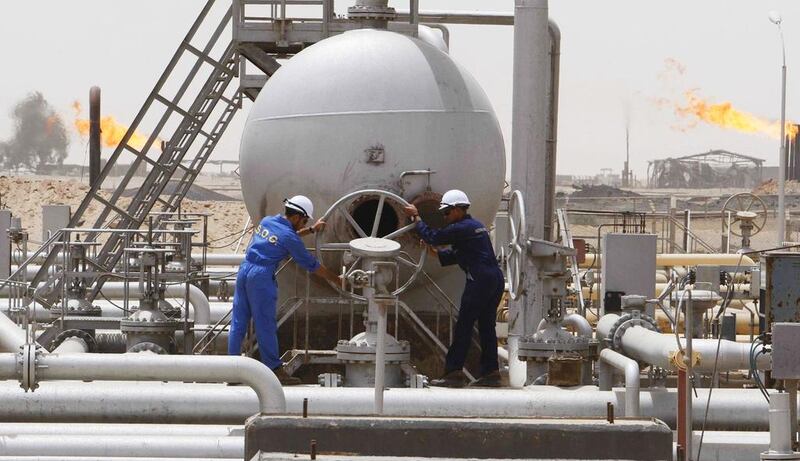Oil markets are likely to stay in flux this week as deepening insurgency in Iraq stokes worries about the impact on the country’s crude output.
Iraqi security forces were yesterday preparing to push back against Islamic militants who are advancing towards Baghdad, the capital, after last week capturing the northern cities of Mosul and Tikrit.
The Iranian president Hassan Rouhani also offered to help stop the forces of the Islamic State in Iraq and the Levant (ISIL), while the US government said it was considering “all options” to help Iraq.
Any further escalation of tensions is likely to bring fresh upward pressure to oil markets after a week in which the insurgency pushed prices to their highest point in around nine months. North Sea Brent crude for delivery in July rose to US$113.41 per barrel on Friday, its highest point since September 9. For the week prices rose 4.4 per cent. US crude on the New York Mercantile Exchange edged to $106.91 per barrel, its highest level since September 18 and 4.1 per cent up for the week.
“This is yet another reminder of the instability across the Middle East in the wake of the Arab Spring,” wrote analysts at Capital Economics in a research note released on Friday. “This in turn is the most important reason why the cost of a barrel of Brent crude has averaged US$110 since 2011.”
Iraq is the second-largest oil producer in the Opec group. It contributes about 4 per cent of global oil output, estimates the International Energy Agency (IEA). In its monthly oil market report produced on Friday, the IEA forecast Iraq’s oil output would rise by more than 1.2 million barrels a day in the six years to 2019. But it said the conflict provided an example of the risk to Iraq’s “huge” production potential.
“Concerning as the latest events in Iraq may be, they might not for now, if the conflict does not spread further, put additional Iraqi oil supplies immediately at risk,” the agency said.
To date, the fighting has not reached the south, where some of the largest of Iraq’s output and export facilities are located. But farther north the armed groups have reportedly attacked several oil facilities, including the Bai Hassan oilfield and the Baiji refinery, which produces 320,000 barrels per day. Kurdish forces on Thursday said they had taken control of Kirkuk, where a major export pipeline runs to the Turkish port of Ceyhan. Kirkuk’s output has dipped to about 200,000 barrels a day from a peak of 1.5 million because of attacks in recent months.
“Oil and gas infrastructure in ISIL-controlled areas – including the northern crude export route and its downstream assets – will be vulnerable to repeated attack, and the risk of disruptions to domestic product supply is high. ISIL will also pose a continued threat to operations in some Kurdish-awarded blocks that lie in disputed territories,” Raad Alkadiri, the senior director of upstream research at IHS Energy, a research consultancy, wrote in a note.
If the fighting drags on, the harder it is likely to become for Baghdad to reach ambitious targets to raise oil output, say analysts.
The government had been aiming to lift output from 3.3 million barrels a day now to 4 million by the end of the year. Much of the growth had been envisioned to come from the relatively untapped reserves in the north and the Kurdish region.
“The longer the insurgency lasts and the more divisive it becomes, the more difficult it will be for Iraq to even approach its potential to sustain production at [6 million barrels a day] or more, with radical implications for oil markets at a time of growing lost production worldwide,” Citigroup analysts wrote in a note, reported The Wall Street Journal.
Saudi Arabia, the UAE and other Opec members would likely step up output in the event of any disruptions to Iraqi supply. They have already done so on several occasions in recent years to help ease bottlenecks caused by sanctions against Iran and conflict in Libya.
tarnold@thenational.ae
Follow us on Twitter @Ind_Insights





